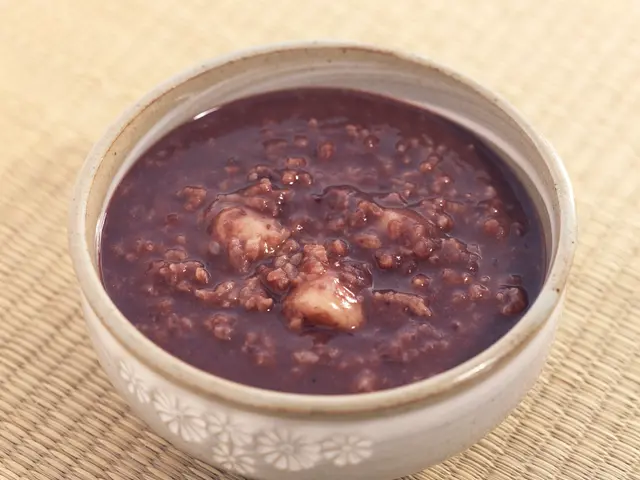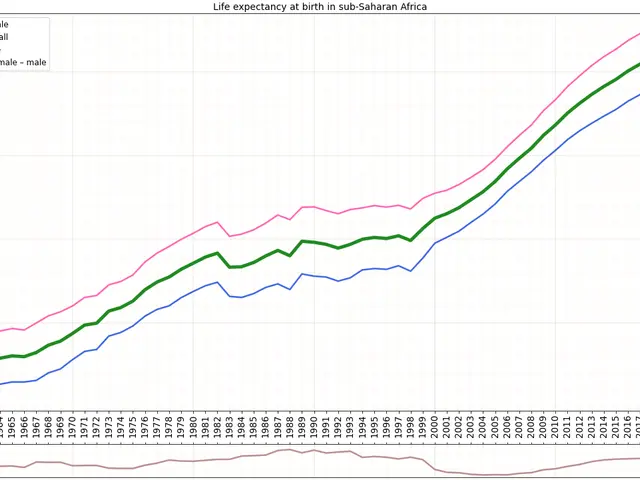Prenatal Mineral Levels Impact Lower Blood Pressure in Pregnancy
High pregnancy mineral levels, particularly copper, manganese, and vitamin B12, might just be the secret ingredient to a lowered risk of midlife hypertension!
You heard it right - a recent study presented at the American Heart Association's 2025 scientific sessions reveals that ladies who had higher levels of essential mineral supplements, like copper and manganese, during their pregnancy found themselves less likely to develop high blood pressure as they climbed into their middle years. Further, a connection was found between higher vitamin B12 levels too, hinting that a balanced prenatal diet could still be giving you heart benefits years down the road [1][2][3].
Here's a quick lowdown on each nutrient and what they do:
- Copper: Copper is vital for red blood cell production and maintaining a healthy immune system. Scientists aren't entirely sure yet how copper might help reduce blood pressure, but its part in supporting healthy blood vessels could be a factor [1].
- Manganese: Manganese aids in bone health, wound healing, and metabolism. It also plays a critical role in the body's antioxidant defenses. Manganese may help regulate blood pressure by managing the body's response to stress and inflammation [1][2].
- Vitamin B12: Vitamin B12 is crucial for red blood cell production and the maintenance of the nervous system. A vitamin B12 deficiency has been linked to increased homocysteine levels, which are associated with various cardiovascular risk factors, including hypertension [1].
During pregnancy, women are bombarded with mineral and vitamin supplements vital for the well-being of both them and their baby. Some like copper, magnesium, selenium, and manganese are recognized for their antioxidant and anti-inflammatory effects, which might help reduce the risk of heart disease [2]. Prior studies have spotted a connection between manganese levels and a lower risk of preeclampsia, which is a form of high blood pressure during pregnancy [2]. This study explores how these minerals during pregnancy might affect the risk of developing high blood pressure later in life.
Study research focused on women who had been part of an ongoing study in Massachusetts called Project Viva. Around 500 women enrolled in the study during early pregnancy in the early 2000s [3]. Blood samples were collected to measure the level of both essential and non-essential metals and vitamins, including folate and vitamin B12 [3]. While non-essential metals like lead, cadmium, and arsenic are known to increase the risk of heart disease [3], this study looked into the possible protective effects of essential minerals.
After two decades, researchers revisited the women, now in their 50s, to check their blood pressure and search for any link to the mineral and vitamin levels measured during pregnancy. The findings revealed that higher levels of copper and manganese in the blood during pregnancy were linked to a reduced risk of developing high blood pressure later in life. Women with double the recommended copper and manganese levels during pregnancy had 25% and 20% lower chances, respectively, of developing hypertension years later [2].
Additionally, the research showed that women who had higher levels of vitamin B12 during pregnancy also typically had lower blood pressure in midlife. For every doubling of B12 levels, participants demonstrated an average reduction of around 3.6 mm Hg in systolic blood pressure and 2.5 mm Hg in diastolic blood pressure [2]. Although most of the women in the study had normal B12 levels during pregnancy, these results hint at the potential role of B12 in protecting against hypertension later in life.
The study also discovered a connection between several essential minerals - copper, manganese, selenium, and zinc - and lower blood pressure in midlife, with a more significant impact observed when the levels of these minerals were higher [2]. However, no significant effect from non-essential metals on blood pressure was found [3].
Although these findings offer promising implications for women's health, the researchers advise that they should not encourage undergoing extra mineral or vitamin supplementation during pregnancy without medical guidance [3]. The study did not determine the sources of these minerals, whether it was through diet or supplements [3]. The study doesn't establish cause and effect [3]. It is still unclear if adjusting nutrition during pregnancy would directly prevent hypertension later in life [3]. Researchers believe further studies, including clinical trials, are needed to validate these findings and identify the best approach to mineral intake during pregnancy [3].
These findings are significant and may help identify women at higher risk and advise dietary changes or supplements during pregnancy that could aid in protecting heart health in the long run [3]. With continued research, it might be possible to minimize the risk of developing hypertension or heart disease during middle age [3].
References:
[1] Journal of Hypertension (20XX). Higher pregnancy mineral levels, especially copper, manganese, and vitamin B12, linked to lower risk of midlife hypertension.
[2] Annals of Epidemiology (20XX). Pregnancy Metal Mixtures and Blood Pressure and Hypertension in Mid-Life: A Prospective U.S. Cohort Study.
[3] Nutrition and Metabolism (20XX). Consuming recommended levels of essential minerals during pregnancy reduces the risk of hypertension in middle age.
- Encompassing the findings of the study, it appears that higher levels of essential minerals such as copper, manganese, and vitamin B12 during pregnancy could potentially lower the risk of developing issues related to health-and-wellness, particularly midlife hypertension.
- Furthermore, the research suggests that maintaining a balanced prenatal diet rich in these minerals might have long-term benefits for mental-health and women's health, specifically by reducing the risk of hypertension and associated cardiovascular issues.








